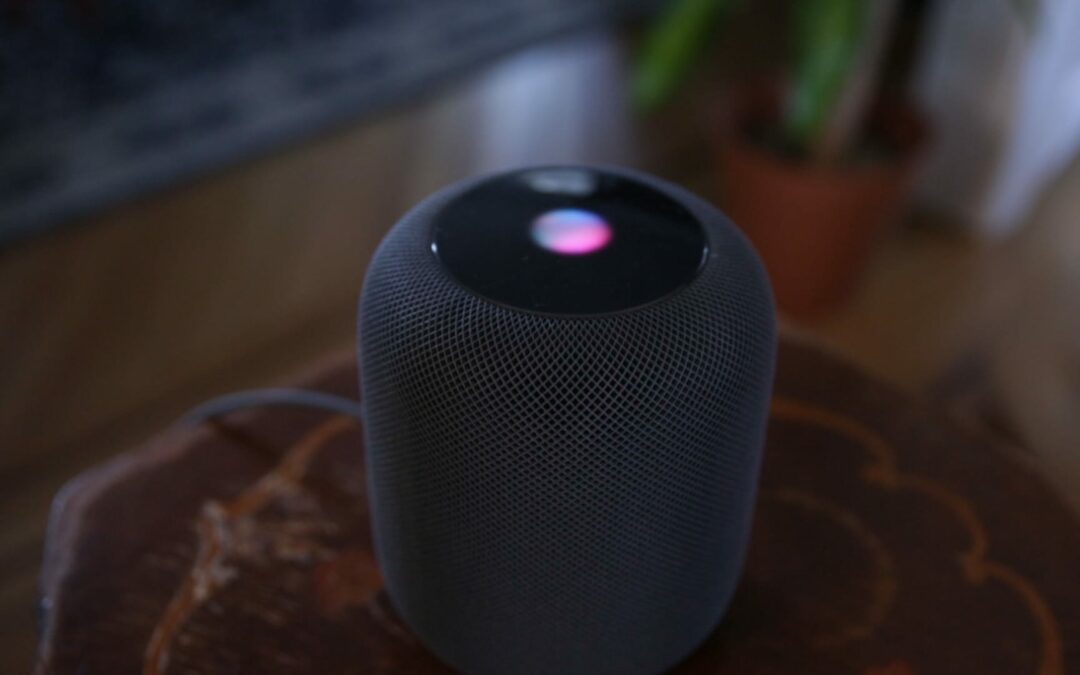A little less than three years ago, we hired a contractor to finish our basement, turning it from a makeshift plywood-floored storage room into a multimedia room. As part of the transition, I was finally able to move my record collection and turntable out of the living room, where my wife had said they made her feel like she was living in a 22-year-old bohemian’s apartment, and into the basement, where I could play them as loud and as long as I wanted.
But I still like to listen to music during dinner and when I’m doing dishes and other chores upstairs. So, in November 2020, I dropped $299 on an Apple HomePod speaker to replace the records and turntable. I chose the HomePod because we’ve been an Apple family. We all have iPhones or iPads as our main personal devices, and my digital music has been locked up on an old iMac since 2010.
The HomePod sounded great, working equally well across lots of different types of music — jazz, rock, hip-hop, ’80s dance hits, ambient — you name it. The bass was loud and the midrange clean. It sounded much better than various inexpensive Bluetooth speakers I’ve used over the years, and superior to the Sonos systems I’ve heard.
But the software and overall user experience was always buggy. It never liked my eclectic mix of digital files from different sources — I have a lot of tunes from ripped CDs and vinyl, as well as a handful of iTunes downloads and subsequent songs I’ve added to my collection from Apple Music, where we have a family subscription. It would often choke on songs that weren’t available on Apple Music. I speculate it was trying to stream everything from the cloud instead of pulling it directly from my phone via Bluetooth, and while I found a couple workarounds, they sometimes stopped working and the music would just seize up in the middle of a song. It was a little annoying, but it sounded so good and looked cool, a mysterious black cylinder in the middle of our living room, so we didn’t replace it.
A few nights ago, it stopped working entirely. Not only did it disappear from my home network, it would no longer turn on or show anything on the display. I tried various tricks from Apple’s support sites to try and reset it, then finally followed the support recommendation and made a Genius Bar appointment at the Apple Store in the mall near my house.
I explained the problem and the service tech plugged it in, tapped the screen a couple of times, agreed with me that it was dead, then checked her iPad for options.
“We don’t repair HomePods in the store,” she explained. “We replace them, we don’t repair them.”
But they wouldn’t replace mine, since it was out of AppleCare warranty. I asked if they repaired it off site, or knew anybody else who could look at it. Nope. But she’d be happy to sell me a new one for $279, although it only came with a 90-day warranty…
I interrupted what I recognized as her AppleCare upsell pitch, thinking maybe I could get something out of the old HomePod before I sent it to the landfill. Maybe they’d refurbish it and resell it, as Apple has done with old iPhones for some years now. “Can I get any money toward an exchange?”
“Just recycling.”
This beautiful $300 speaker I’d bought less than three years ago was worth no more than the rare earth metals inside it. It’s really heavy, though, which makes it nice as a doorstop.
Apple does not repair HomePods, according to an Apple Store employee.
Matt Rosoff, CNBC
I checked online again to see if Apple had any other options, like sending it in for repairs. It just guided me back to my local Apple Store. So much for that.
I don’t have any deep conclusions from this whole experience, but it crystallized the general lack of enthusiasm I’ve felt for Apple products in recent years. The iPhone is still an amazing invention, and I prefer it to every Android phone I’ve ever used, but we’ve all gotten used to them after 15-plus years. The improvements each year seem smaller and more incremental. I buy new iPhones when my old ones break, but mainly out of inertia. The Apple Store used to feel like a church of technology, with an array of beautiful gadgets and enthusiastic people to help you use them and fix them if something went wrong. Now it feels more like a rental car stand, where the main goal is to get you in and out fast with as many add-on services attached as possible.
Apple is still a profitable juggernaut of a company, and many of its products still inspire devotion, particularly the AirPods (I prefer over-the-ear Beats) and Apple Watch. But the original HomePod was always a weird move. It seemed like a bit of a rush job to capitalize on the sudden popularity of Amazon‘s Alexa speaker, and now that the fad has passed it seems like Apple isn’t particularly interested in the product anymore. Buyer beware.
An Apple spokesperson did not immediately respond to a request for comment on the company’s repair policy toward HomePods.







